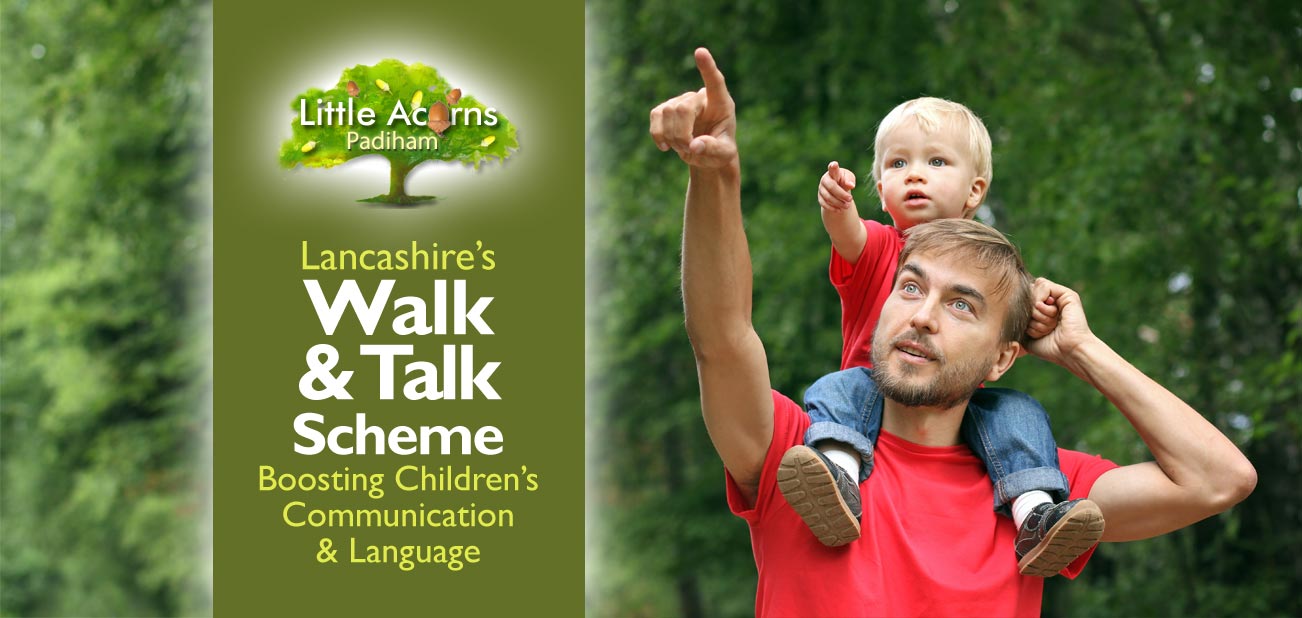
 Lancashire’s Walk & Talk Initiative is a scheme that’s wholeheartedly supported by the childcare practitioners at Little Acorns Nursery in Padiham. We encourage all Lancashire parents to take part too. It’s an initiative that is incredibly simple but has far-reaching benefits for children in their early years. Let’s take a look today at what Walk & Talk is all about, what its aims are, the benefits to children, and how families can get involved.
Lancashire’s Walk & Talk Initiative is a scheme that’s wholeheartedly supported by the childcare practitioners at Little Acorns Nursery in Padiham. We encourage all Lancashire parents to take part too. It’s an initiative that is incredibly simple but has far-reaching benefits for children in their early years. Let’s take a look today at what Walk & Talk is all about, what its aims are, the benefits to children, and how families can get involved.
What is the Walk & Talk Scheme & Where Did it Come From?
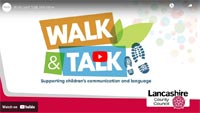 The Walk & Talk scheme is an initiative started by Lancashire County Council back in September 2022. The idea is simply to encourage families to get outdoors and, while doing so, to communicate with each other whilst they walk so that children can improve a variety of skills. As their explanatory video explains, going for a walk helps children hone attention skills, listening skills and, when proactively conversed with, communication and language skills too.
The Walk & Talk scheme is an initiative started by Lancashire County Council back in September 2022. The idea is simply to encourage families to get outdoors and, while doing so, to communicate with each other whilst they walk so that children can improve a variety of skills. As their explanatory video explains, going for a walk helps children hone attention skills, listening skills and, when proactively conversed with, communication and language skills too.
Key Aims of the Scheme
Key aims of the Walk & Talk Initiative include:
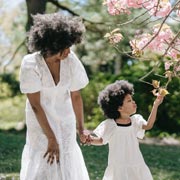 a reduction in the ‘word gap’ — helping children learn new words and widen vocabulary;
a reduction in the ‘word gap’ — helping children learn new words and widen vocabulary;- supporting parents with ideas for deeper interactions with their children;
- encouraging adults to talk with children more during everyday activities;
- garnering a deeper sense of curiosity in children;
- encouraging conversational skills in children, for example, knowing how to take turns when discussing things;
- getting children outdoors more often — it’s great for their well-being.
The Walk & Talk Scheme
There are so many beautiful places in Lancashire where families can explore. While doing so, they can both walk and talk with little ones to promote the importance and benefits of communication.
“Our Walk & Talk initiative aims to get families outside and promote the importance of communication.” (Lancashire District Council)
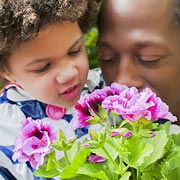 The scheme also aims to encourage children to use a variety of senses. These include, for example, sight, smell, touch, taste, hearing and, of course, active listening. When out on walks there are so many different things for children’s senses to be stimulated by and each lends itself to a conversation. Whether it’s the sound of birdsong, the feeling of the wind on their faces, the smell of freshly-cut grass on the breeze, the noise of traffic, the dazzlingly beautiful colours of blossom, or the mouth-watering smell of food cooking around the neighbourhood or town, walking is indeed a feast for the senses.
The scheme also aims to encourage children to use a variety of senses. These include, for example, sight, smell, touch, taste, hearing and, of course, active listening. When out on walks there are so many different things for children’s senses to be stimulated by and each lends itself to a conversation. Whether it’s the sound of birdsong, the feeling of the wind on their faces, the smell of freshly-cut grass on the breeze, the noise of traffic, the dazzlingly beautiful colours of blossom, or the mouth-watering smell of food cooking around the neighbourhood or town, walking is indeed a feast for the senses.
The secret, of course, is for adults to discuss such things with the children and that’s all a part of what the Walk & Talk initiative is all about. So, whether you’re at the beach, in a shop, at the park, in the garden, or out in the street with a child, take every opportunity to ask them to describe what they see, hear, feel, touch and, when appropriate, taste. Feed back to them too, to expand the conversation.
Get Involved
“Let’s make walking and talking a priority.” (Lancashire District Council)
Walk & Talk Examples
Stuck for ideas of what to talk about as you walk with your child, or do you need some examples to get you started? No problem. Here are a few ideas to give you a flavour of the type of conversations you can start with your little one.
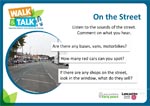 When you’re walking along streets, in town, or travelling on roads with your child, ask them to spot and name any numbers on signs, road signs, number plates, or buses. Ask them how many wheels the bus or lorry has. What noise do the cars make when they pull off from the traffic lights? What does a red traffic light mean? How about a green one? Have they noticed the difference between the sound of an electric car compared to a petrol or diesel one?
When you’re walking along streets, in town, or travelling on roads with your child, ask them to spot and name any numbers on signs, road signs, number plates, or buses. Ask them how many wheels the bus or lorry has. What noise do the cars make when they pull off from the traffic lights? What does a red traffic light mean? How about a green one? Have they noticed the difference between the sound of an electric car compared to a petrol or diesel one?
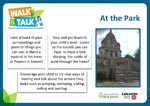 If you’re at the park with your child, get them to notice things around them and point them out to you. Examples might include flowers, dogs going for a walk, ducks on the lake, birds, bees, and different types of leaves. Discuss them. Perhaps even encourage your child(ren) to make up a poem about what they see or hear.
If you’re at the park with your child, get them to notice things around them and point them out to you. Examples might include flowers, dogs going for a walk, ducks on the lake, birds, bees, and different types of leaves. Discuss them. Perhaps even encourage your child(ren) to make up a poem about what they see or hear.
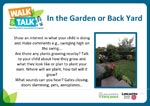 Similarly, you can instigate a conversation with them about the flora and fauna in a garden. Can they spot and describe a butterfly? What is the butterfly doing? What is a bee doing and why are they important? (Click the thumbnail images for more ideas).
Similarly, you can instigate a conversation with them about the flora and fauna in a garden. Can they spot and describe a butterfly? What is the butterfly doing? What is a bee doing and why are they important? (Click the thumbnail images for more ideas).
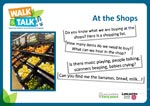 At the local shops, you might ask your little one what they can hear, for example background music, the babble of chattering people, tills being used to scan items, and so on. How many bananas do we need this week? Can you fetch them for me, please? Let’s discuss what’s left on the shopping list. And can they smell the lovely scent of food cooking in the bakery section?
At the local shops, you might ask your little one what they can hear, for example background music, the babble of chattering people, tills being used to scan items, and so on. How many bananas do we need this week? Can you fetch them for me, please? Let’s discuss what’s left on the shopping list. And can they smell the lovely scent of food cooking in the bakery section?
Tips for Successful Communication with Your Child
- Get their attention, for example, by saying their name or by pointing out something interesting during the walk.
- Try getting down to their level. There, you can communicate face to face whilst ensuring they’re actively engaging with you and looking at or listening to things you’re pointing out to them.
- Ensure they know you’re listening and responding to them too, for example, through what you say, nodding, keeping good eye contact, not interrupting, avoiding finishing sentences for them, and so on.
- Allow your child(ren) proper time to respond to something you’ve pointed out or asked them about. While their language skills and knowledge are still developing, they’ll need more time to respond than an adult might.
- When appropriate, add extra verbal detail for them to build on their language, knowledge and understanding of conversations.
- If your child expresses an interest in something, ensure you follow that interest and explore it further with them. When they’re already interested, you are pushing at an open door.
- Say, “well done” to them and give them praise when they do well, for example, when they learn a new word, phrase, or fact.
- Don’t forget that communication is not just verbal and children will therefore need to take your lead in the way you also use facial expressions and body language to convey some types of communication.
- Remember too that every activity is an opportunity for talking, communication, and learning.
- Make it fun! When you make walking and talking with your child fun, they’re more likely to enjoy and learn from it.
A High-Quality Early Years Education at Little Acorns Nursery, Padiham
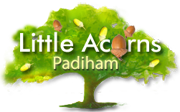 Fostering good communication and language skills is, of course, all part of the wonderful early years education that children under five gain at Little Acorns Nursery in Padiham, Lancashire. Indeed, we nurture all aspects of the learning and development of all our babies, toddlers and preschoolers; we bring out the very best in them to ensure they have all the tools to thrive and succeed in every way possible. So, if you are looking for the best nursery for your child in Padiham or live nearby in Hapton, Rose Grove, Burnley, Altham, Huncoat, Read, Simonstone, Sabden, Higham or Wood End, contact us to explore a possible place for your child at our exceptional nursery and preschool. We’ll be happy to answer any questions, show you and your little one around, or register your child for a childcare place.
Fostering good communication and language skills is, of course, all part of the wonderful early years education that children under five gain at Little Acorns Nursery in Padiham, Lancashire. Indeed, we nurture all aspects of the learning and development of all our babies, toddlers and preschoolers; we bring out the very best in them to ensure they have all the tools to thrive and succeed in every way possible. So, if you are looking for the best nursery for your child in Padiham or live nearby in Hapton, Rose Grove, Burnley, Altham, Huncoat, Read, Simonstone, Sabden, Higham or Wood End, contact us to explore a possible place for your child at our exceptional nursery and preschool. We’ll be happy to answer any questions, show you and your little one around, or register your child for a childcare place.
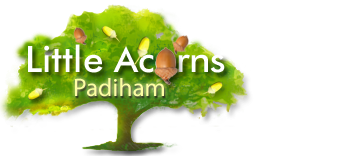
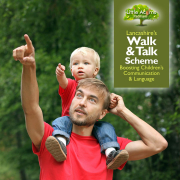
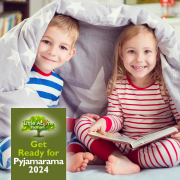
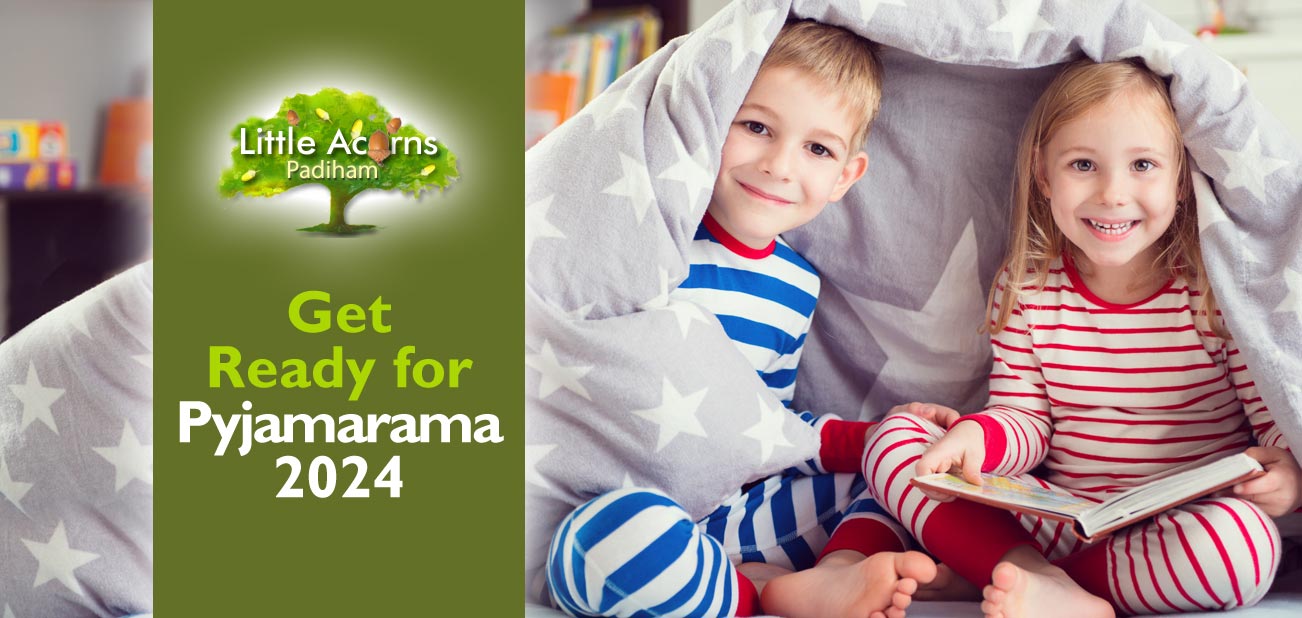
 Pyjamarama is a one-day fundraising event that’s organised through the children’s reading charity BookTrust. It takes place each year across a variety of UK settings including homes, schools, preschools, nurseries and more. As well as being great fun for those organising and taking part, the initiative is beneficial to millions of disadvantaged children. The ultimate aim is to raise money to fund the purchase of books and resources, so that every child in the UK gets the chance for bedtime stories and each family has proper reading opportunities. The initiative is hugely popular, great fun, and transforms lives. Today, we take a look at what to expect, how to get involved, and the many benefits of Pyjamarama.
Pyjamarama is a one-day fundraising event that’s organised through the children’s reading charity BookTrust. It takes place each year across a variety of UK settings including homes, schools, preschools, nurseries and more. As well as being great fun for those organising and taking part, the initiative is beneficial to millions of disadvantaged children. The ultimate aim is to raise money to fund the purchase of books and resources, so that every child in the UK gets the chance for bedtime stories and each family has proper reading opportunities. The initiative is hugely popular, great fun, and transforms lives. Today, we take a look at what to expect, how to get involved, and the many benefits of Pyjamarama. Pyjamarama is always a fun day for both adults and children. The added aspect of pyjamas makes it special, quirky and relaxed. And, at the end of the day, it’s incredibly worthwhile. Not only does it raise money to give disadvantaged children and their families opportunities for reading and bedtime stories, but it also encourages those children taking part in Pyjamarama to read more, for pleasure as much as anything. Additionally, it gives children a different perspective and encourages altruism and empathy for others less fortunate than themselves.
Pyjamarama is always a fun day for both adults and children. The added aspect of pyjamas makes it special, quirky and relaxed. And, at the end of the day, it’s incredibly worthwhile. Not only does it raise money to give disadvantaged children and their families opportunities for reading and bedtime stories, but it also encourages those children taking part in Pyjamarama to read more, for pleasure as much as anything. Additionally, it gives children a different perspective and encourages altruism and empathy for others less fortunate than themselves.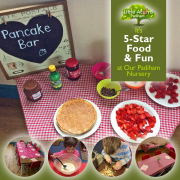
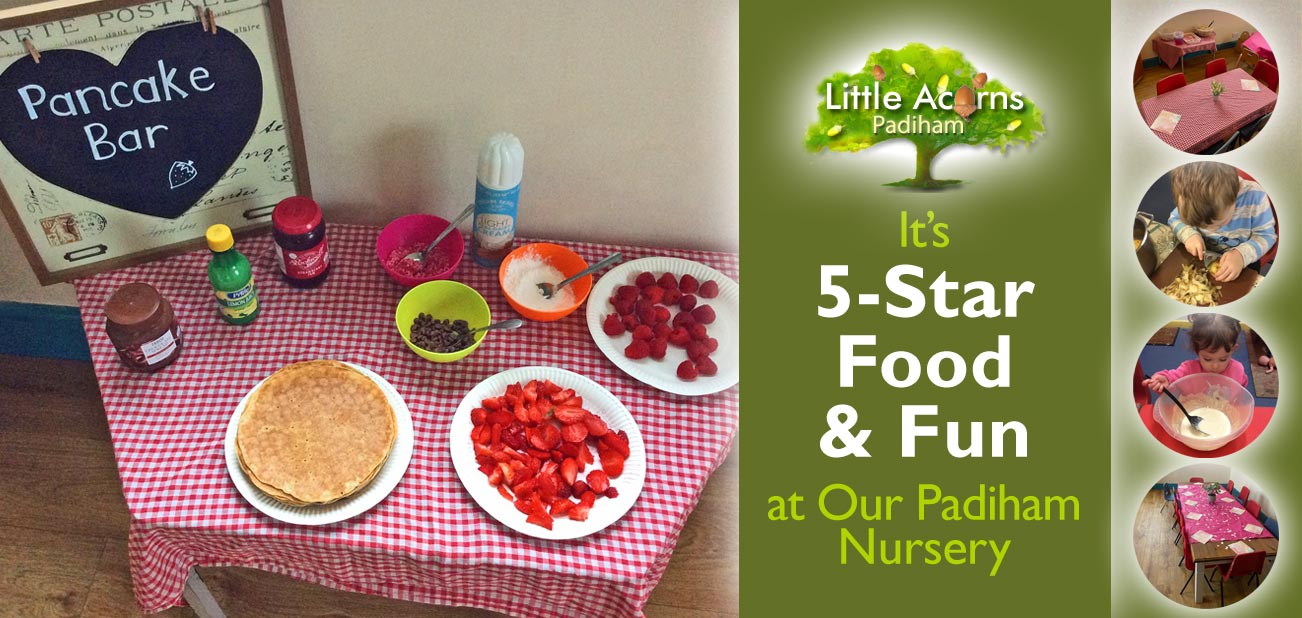
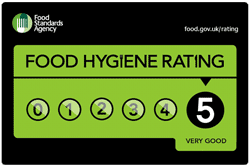 Our Padiham nursery had its annual inspection by the local Environmental Health Officer recently. The purpose was to ensure, as required in all settings serving food, that Little Acorns Nursery has high standards of hygiene and follows the food preparation guidelines specified by the UK’s Food Standards Agency. Once again, Little Acorns Nursery passed with flying colours, achieving a full 5-star rating. That’s the best rating possible and reflects the highest levels of quality for food preparation, the food itself, cleanliness, and competence of staff. So, our thanks and utmost respect go to Kim, our in-house chef/cook, whose high standards, skill and expertise do the children and the nursery proud.
Our Padiham nursery had its annual inspection by the local Environmental Health Officer recently. The purpose was to ensure, as required in all settings serving food, that Little Acorns Nursery has high standards of hygiene and follows the food preparation guidelines specified by the UK’s Food Standards Agency. Once again, Little Acorns Nursery passed with flying colours, achieving a full 5-star rating. That’s the best rating possible and reflects the highest levels of quality for food preparation, the food itself, cleanliness, and competence of staff. So, our thanks and utmost respect go to Kim, our in-house chef/cook, whose high standards, skill and expertise do the children and the nursery proud.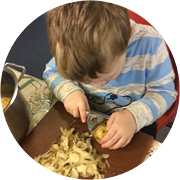 Because the recipe heavily involved potatoes, this also tied in nicely with the book Supertato, which our preschoolers have been looking at in tandem with discussions about food and the importance of a healthy diet. The photo shows one of the children peeling potatoes. Others peeled vegetables and even made their own dumplings. The fun activity helped to nurture children’s learning and the development of new skills and knowledge. The final result was both tasty and a huge hit with the little ones!
Because the recipe heavily involved potatoes, this also tied in nicely with the book Supertato, which our preschoolers have been looking at in tandem with discussions about food and the importance of a healthy diet. The photo shows one of the children peeling potatoes. Others peeled vegetables and even made their own dumplings. The fun activity helped to nurture children’s learning and the development of new skills and knowledge. The final result was both tasty and a huge hit with the little ones!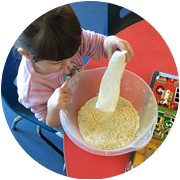 Shrove Tuesday, a.k.a. Pancake Day, arrived on the 13th of February and it gave us a great opportunity to organise pancake-themed activities for the nursery/preschool children … for the entire week! After all, who doesn’t love pancakes? So, as you’ve no doubt guessed by now, our Recipe of the Month for February was home-made pancakes and it’s a recipe the children really enjoyed getting involved in. They loved mixing ingredients in a bowl to make their own pancake mix. We even set up a ‘Pancake Bar’ (see the main photo at the top), which included lots of yummy toppings that children could use to decorate their pancakes. The toppings included strawberries, bananas, chocolate spread, jam, lemon, sprinkles, honey and cream.
Shrove Tuesday, a.k.a. Pancake Day, arrived on the 13th of February and it gave us a great opportunity to organise pancake-themed activities for the nursery/preschool children … for the entire week! After all, who doesn’t love pancakes? So, as you’ve no doubt guessed by now, our Recipe of the Month for February was home-made pancakes and it’s a recipe the children really enjoyed getting involved in. They loved mixing ingredients in a bowl to make their own pancake mix. We even set up a ‘Pancake Bar’ (see the main photo at the top), which included lots of yummy toppings that children could use to decorate their pancakes. The toppings included strawberries, bananas, chocolate spread, jam, lemon, sprinkles, honey and cream.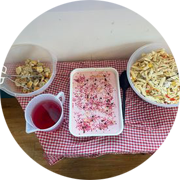 Valentine’s Day, which arrived on the 14th of February, also involved lots of food. After all, as the saying goes, it is often thought of as the language of love! At the nursery, we organised a lovely Grab ‘n’ Go Breakfast for our parents. This was followed by a special 3-course Valentine’s Day meal for our children in our lovely new dining room, which was set up like a little restaurant (see the photos). Children had sausage rolls to start, cheesy chicken and red pepper pasta for the main course and strawberry mousse – with sprinkles – for pudding. Accompanying this was some delicious blackcurrant juice. It all went down a treat with our nursery children, as did several other activities that were themed towards Valentine’s Day.
Valentine’s Day, which arrived on the 14th of February, also involved lots of food. After all, as the saying goes, it is often thought of as the language of love! At the nursery, we organised a lovely Grab ‘n’ Go Breakfast for our parents. This was followed by a special 3-course Valentine’s Day meal for our children in our lovely new dining room, which was set up like a little restaurant (see the photos). Children had sausage rolls to start, cheesy chicken and red pepper pasta for the main course and strawberry mousse – with sprinkles – for pudding. Accompanying this was some delicious blackcurrant juice. It all went down a treat with our nursery children, as did several other activities that were themed towards Valentine’s Day.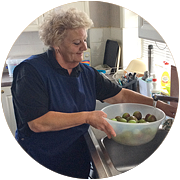 Kim, our talented in-house chef, prepares tasty home-made meals and healthy snacks for children at the nursery. Meals are prepared freshly, on site, using high-quality ingredients, which are locally sourced whenever possible. They are delicious as well as being nutritionally balanced to include a healthy mix of fish, meat, pulses and vegetables.
Kim, our talented in-house chef, prepares tasty home-made meals and healthy snacks for children at the nursery. Meals are prepared freshly, on site, using high-quality ingredients, which are locally sourced whenever possible. They are delicious as well as being nutritionally balanced to include a healthy mix of fish, meat, pulses and vegetables. 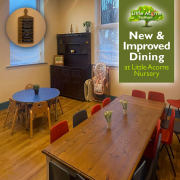
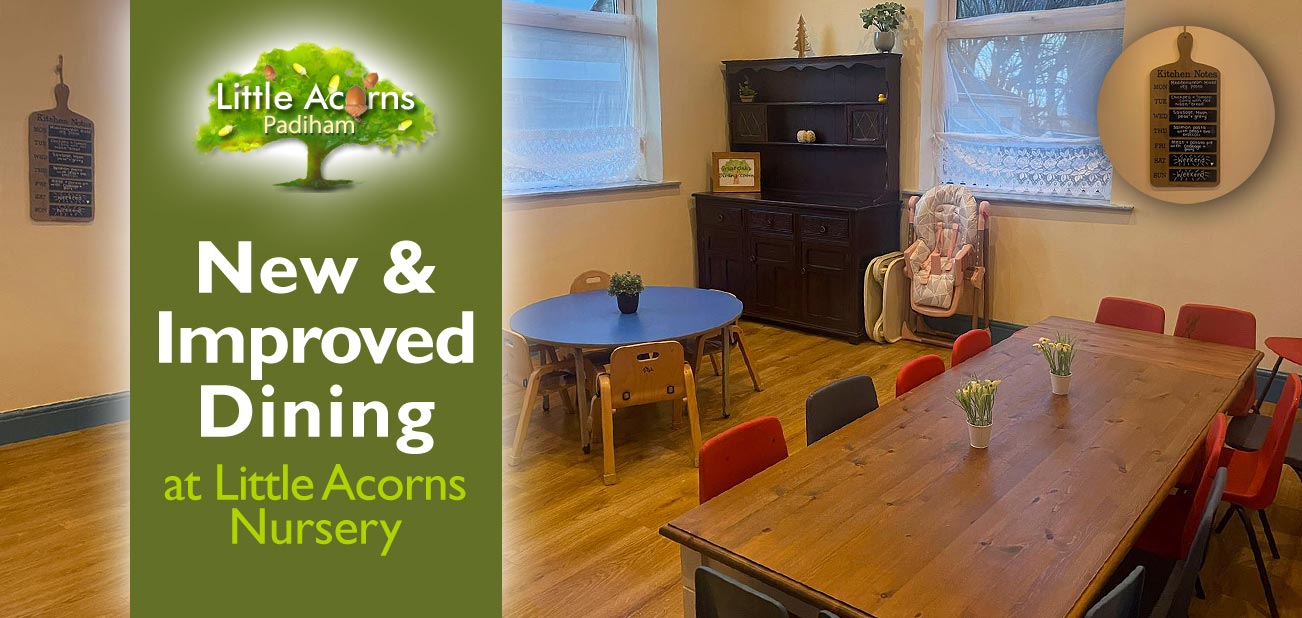
 To make way for the new children’s dining room, an existing room at the setting was repurposed and totally revamped. Starting in Summer 2023, the contents of the existing room were sorted and relocated where needed, leaving a wonderful new space to use as the new ‘Great Oaks’ dining room. Walls, ceilings and skirting boards were prepared and freshened up with new paint. Attractive William Morris-style wallpaper was also hung on a ‘feature’ wall. Large canvas wall images were displayed to form interesting focal points and storage was added in the form of a large cabinet and a small cupboard. Large and small dining room tables and chairs were added for the different age groups along with high chairs, which will be close at hand whenever needed. All this sits on a durable floor with an attractive wood finish. All in all, the outcome is a pleasant home-from-home for children.
To make way for the new children’s dining room, an existing room at the setting was repurposed and totally revamped. Starting in Summer 2023, the contents of the existing room were sorted and relocated where needed, leaving a wonderful new space to use as the new ‘Great Oaks’ dining room. Walls, ceilings and skirting boards were prepared and freshened up with new paint. Attractive William Morris-style wallpaper was also hung on a ‘feature’ wall. Large canvas wall images were displayed to form interesting focal points and storage was added in the form of a large cabinet and a small cupboard. Large and small dining room tables and chairs were added for the different age groups along with high chairs, which will be close at hand whenever needed. All this sits on a durable floor with an attractive wood finish. All in all, the outcome is a pleasant home-from-home for children.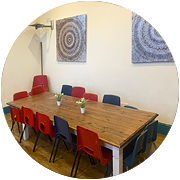
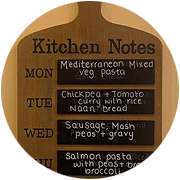
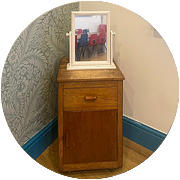
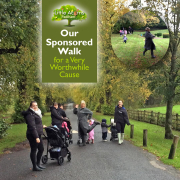
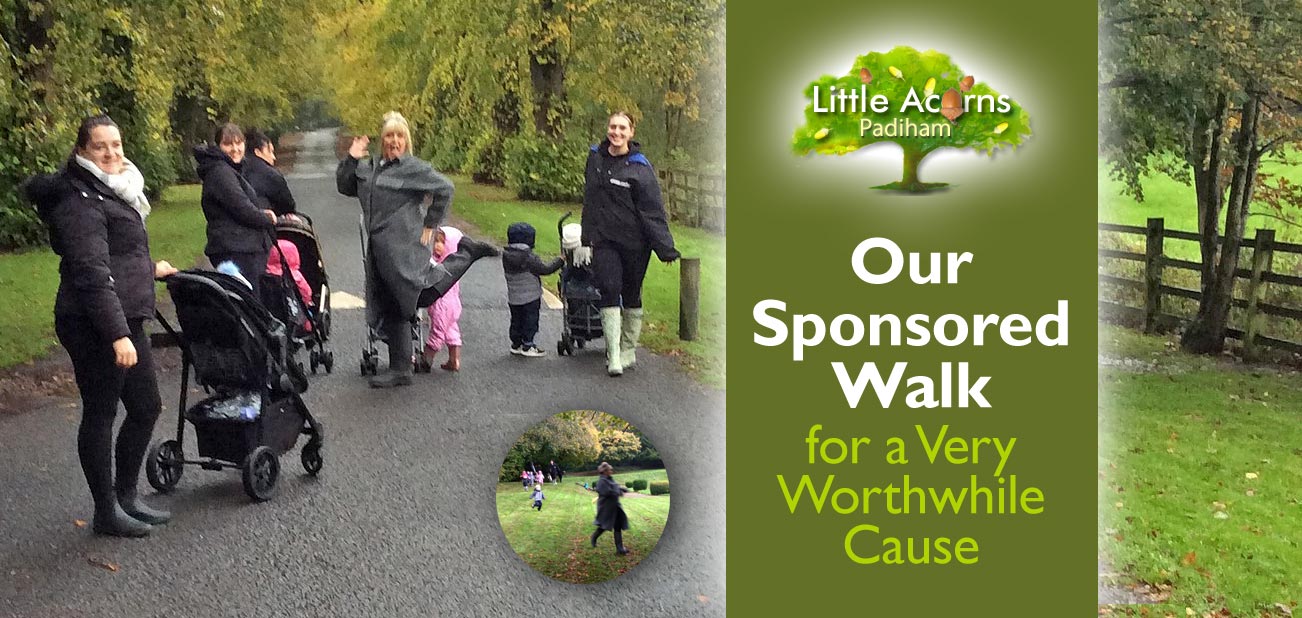
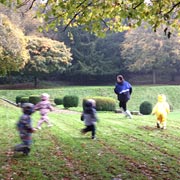 During the autumn half-term break, adults and children from Little Acorns Nursery in Padiham embarked on a sponsored walk around Gawthorpe Park. The walk took place during a cold and wet Tuesday, on 24th October, with children from our Little Seedlings, Little Acorns and Great Oaks rooms donning Wellington boots, anoraks and wet weather gear for the task. Once assembled, little ones and adults braved the inclement weather and went on to complete the walk admirably, even making the local Burnley Express paper
During the autumn half-term break, adults and children from Little Acorns Nursery in Padiham embarked on a sponsored walk around Gawthorpe Park. The walk took place during a cold and wet Tuesday, on 24th October, with children from our Little Seedlings, Little Acorns and Great Oaks rooms donning Wellington boots, anoraks and wet weather gear for the task. Once assembled, little ones and adults braved the inclement weather and went on to complete the walk admirably, even making the local Burnley Express paper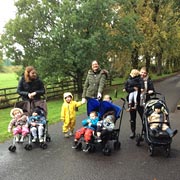 When the rain persisted, children were also encouraged to use magic wands to wish it away!
When the rain persisted, children were also encouraged to use magic wands to wish it away! The sponsored walk was dedicated to a cause that’s extremely close to our hearts — the memory of Yusuf, the baby son of one of our families — as well as aiming to raise awareness of SIDS (Sudden Infant Death Syndrome). £148 was raised through our sponsored walk and a further £52 through a cake sale by our
The sponsored walk was dedicated to a cause that’s extremely close to our hearts — the memory of Yusuf, the baby son of one of our families — as well as aiming to raise awareness of SIDS (Sudden Infant Death Syndrome). £148 was raised through our sponsored walk and a further £52 through a cake sale by our 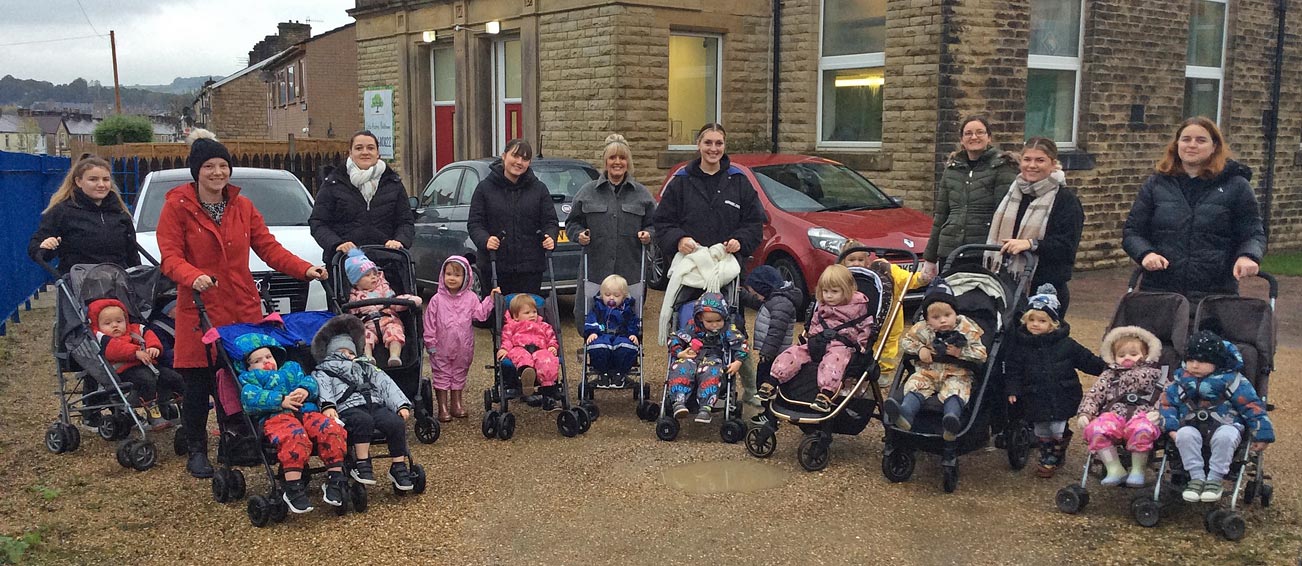
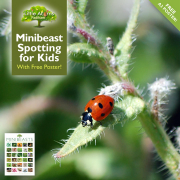
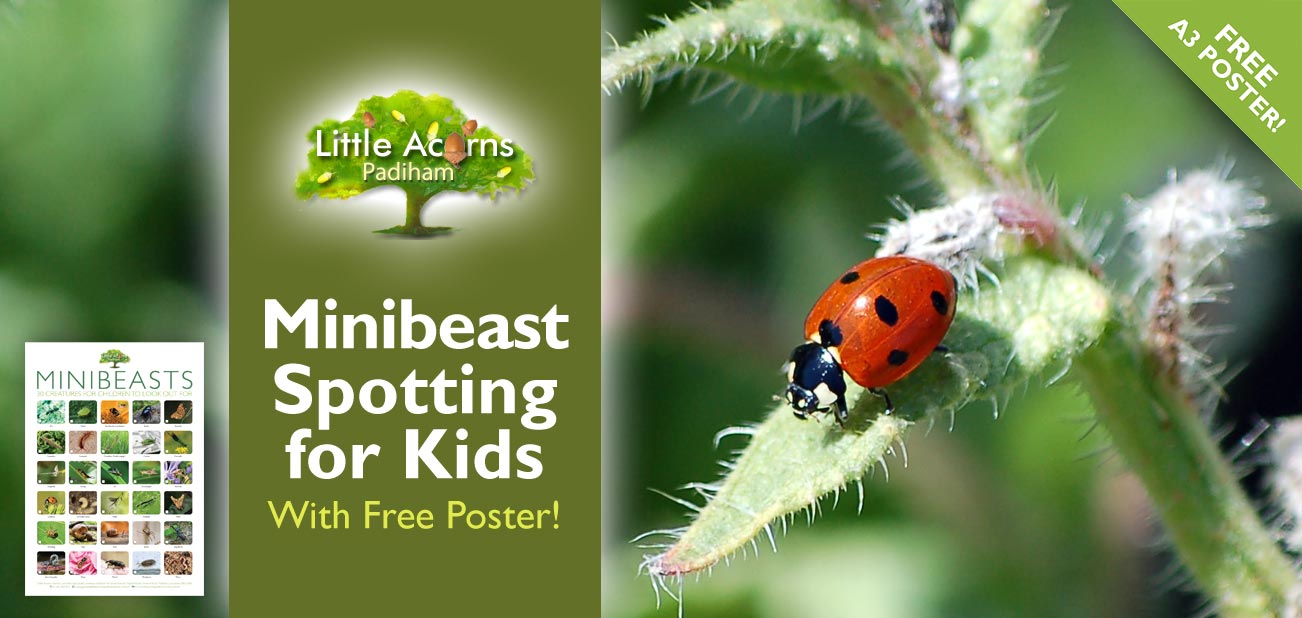
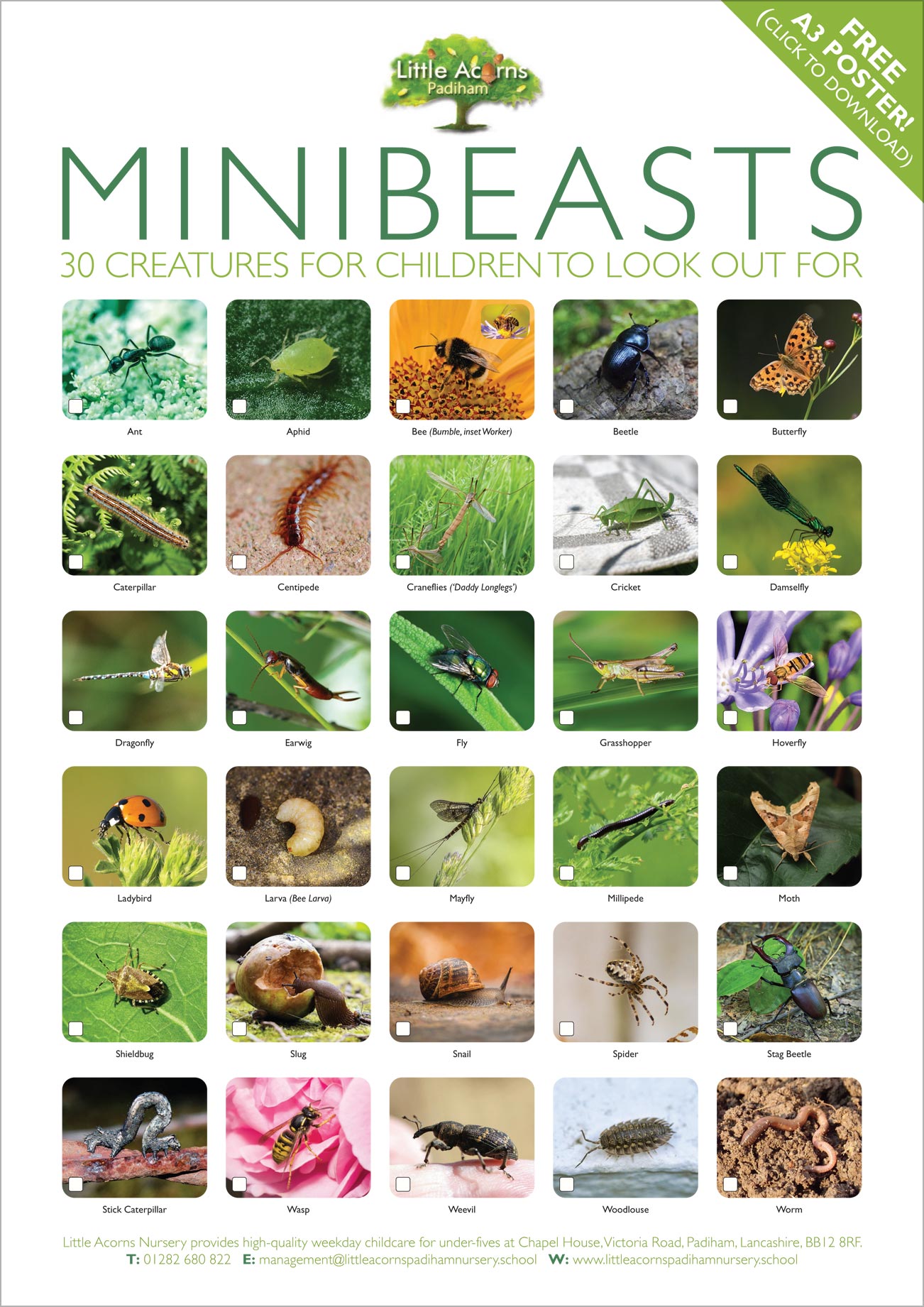
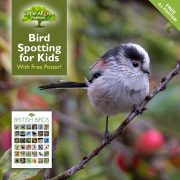
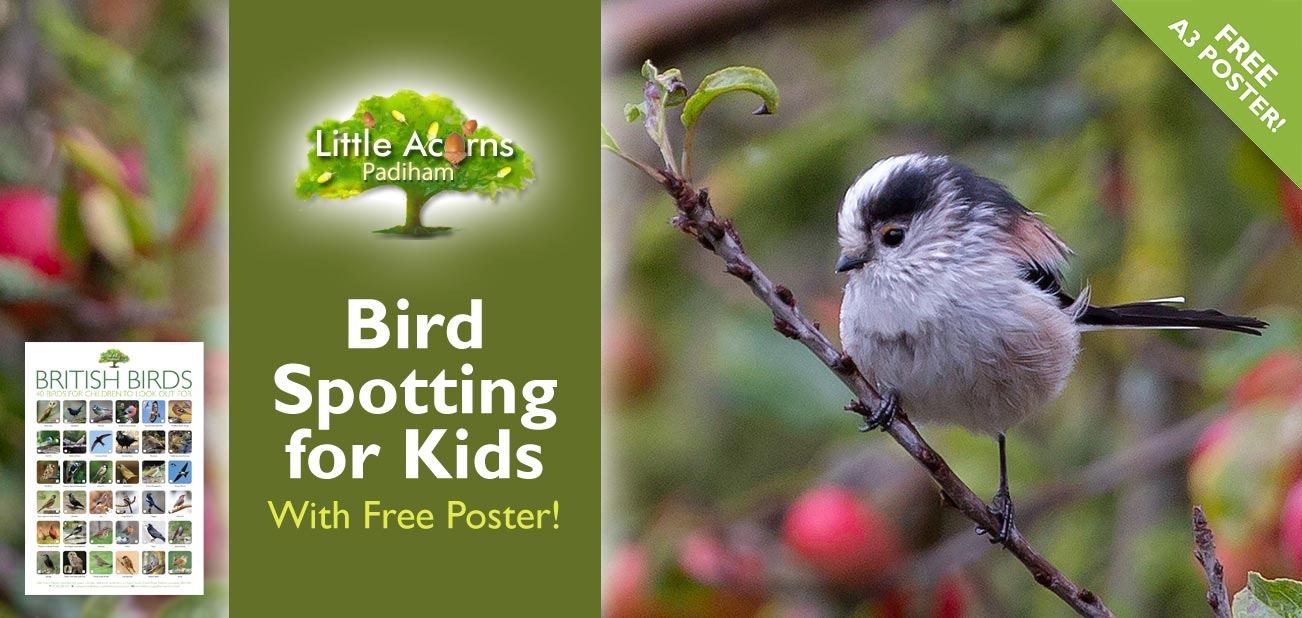
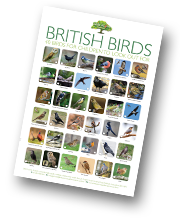 Today’s bird spotting activity for kids continues our series of nature-themed posts that each come with a free reference poster for families to download. Featuring 40 British birds, the activity and the poster represent a great opportunity to get children of all ages outdoors, closer to nature. As many of us know,
Today’s bird spotting activity for kids continues our series of nature-themed posts that each come with a free reference poster for families to download. Featuring 40 British birds, the activity and the poster represent a great opportunity to get children of all ages outdoors, closer to nature. As many of us know, 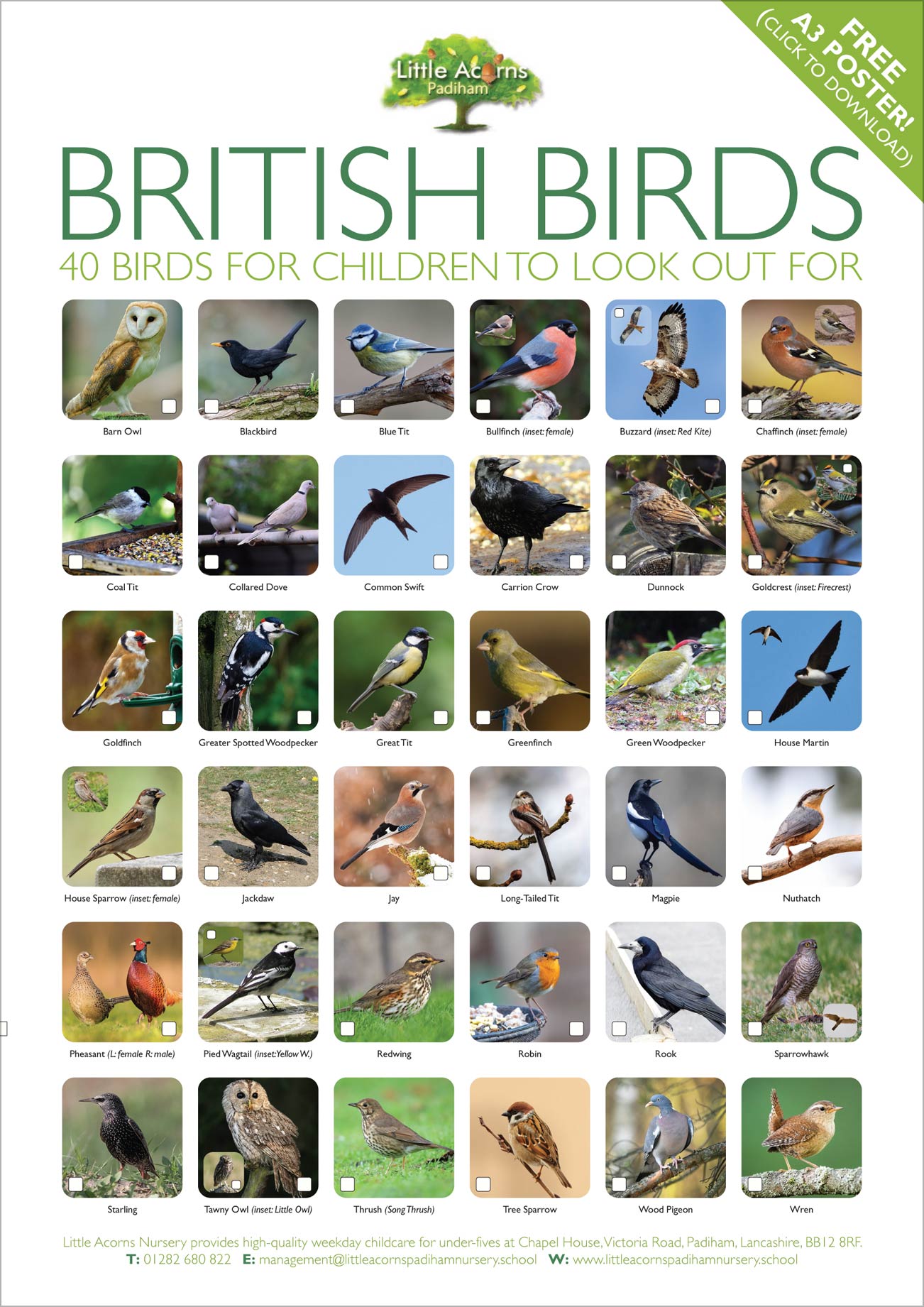
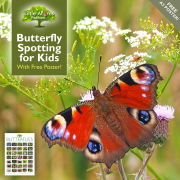
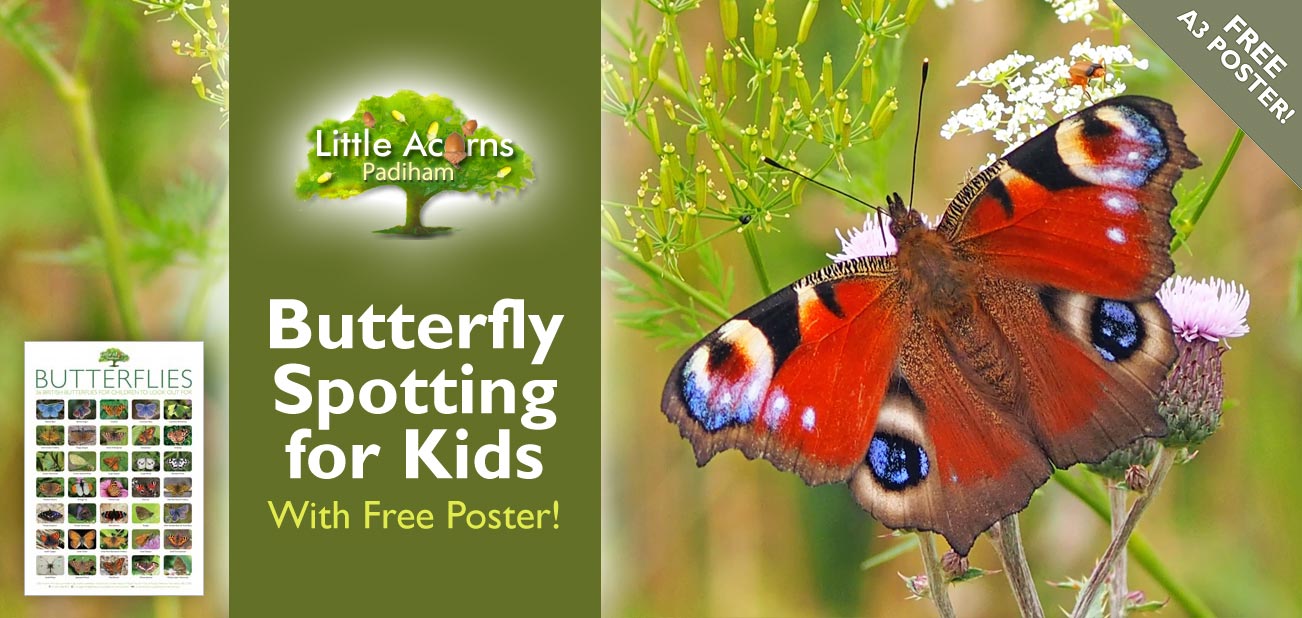
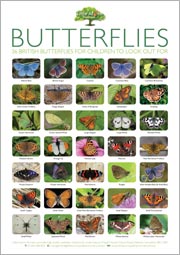 At the time of writing, it’s peak butterfly-spotting time — more adult butterflies can be seen in late July and early August than at any other time in the year. That makes it the perfect time for children to get out in nature to spot these charming creatures. Doing so is fun, educational and also beneficial in so many ways – we’ll explain more about that later.
At the time of writing, it’s peak butterfly-spotting time — more adult butterflies can be seen in late July and early August than at any other time in the year. That makes it the perfect time for children to get out in nature to spot these charming creatures. Doing so is fun, educational and also beneficial in so many ways – we’ll explain more about that later.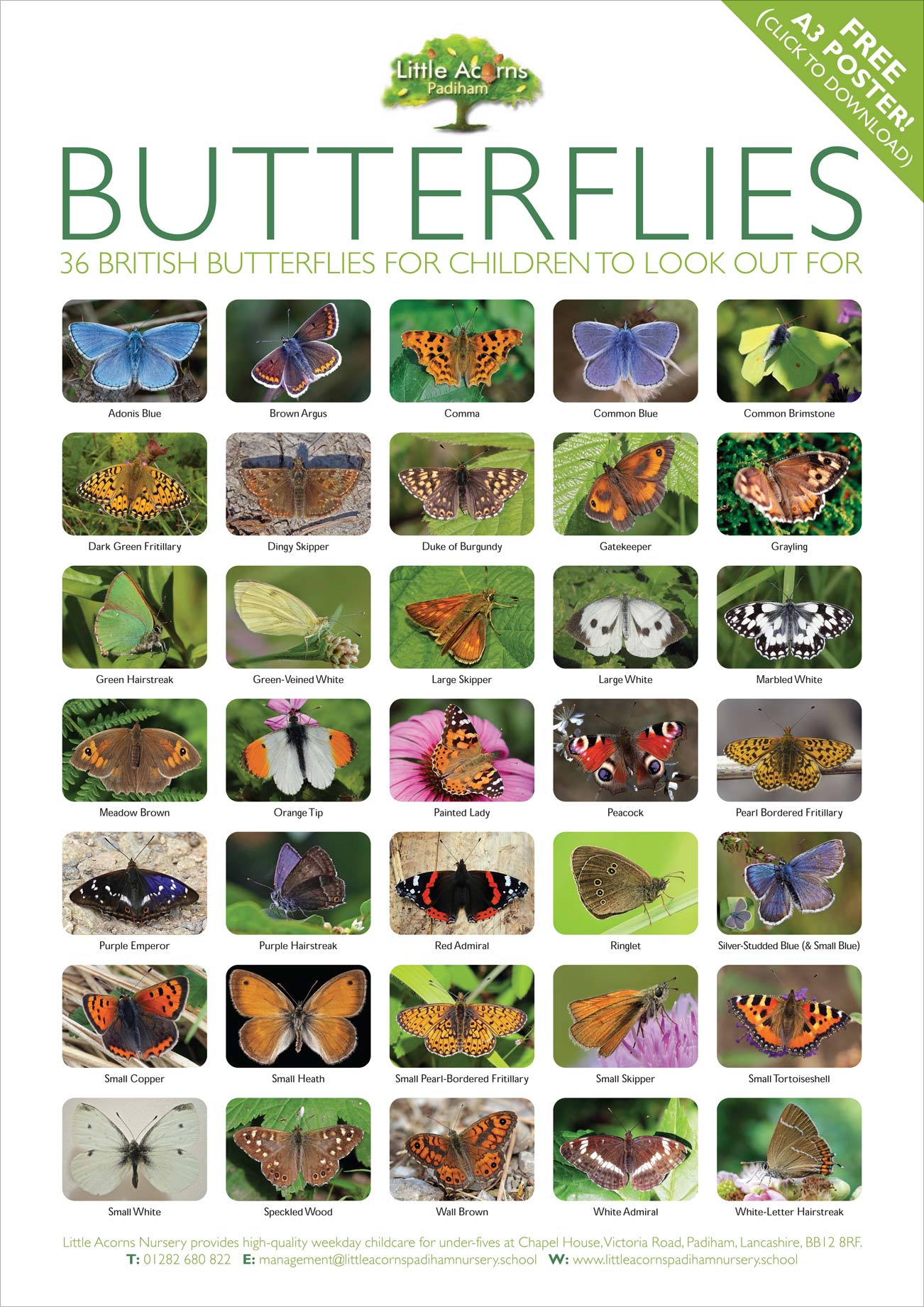

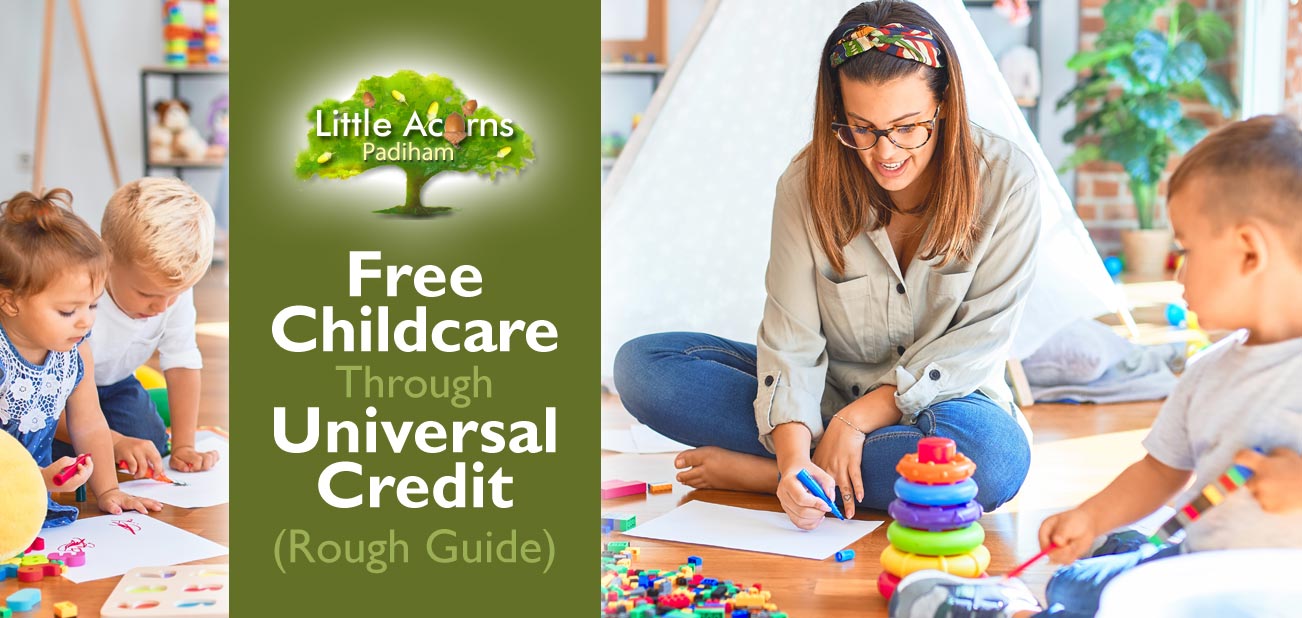
 Usually, you will need to pay for childcare costs first and then reclaim them through your Universal Credit childcare support account. However, there are some circumstances where you may be able to get some of your childcare costs paid upfront through the scheme. This recent change is designed to help families essentially with cash flow so that a major barrier to working is removed. That, in turn, will also help the economy.
Usually, you will need to pay for childcare costs first and then reclaim them through your Universal Credit childcare support account. However, there are some circumstances where you may be able to get some of your childcare costs paid upfront through the scheme. This recent change is designed to help families essentially with cash flow so that a major barrier to working is removed. That, in turn, will also help the economy.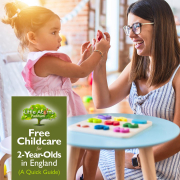
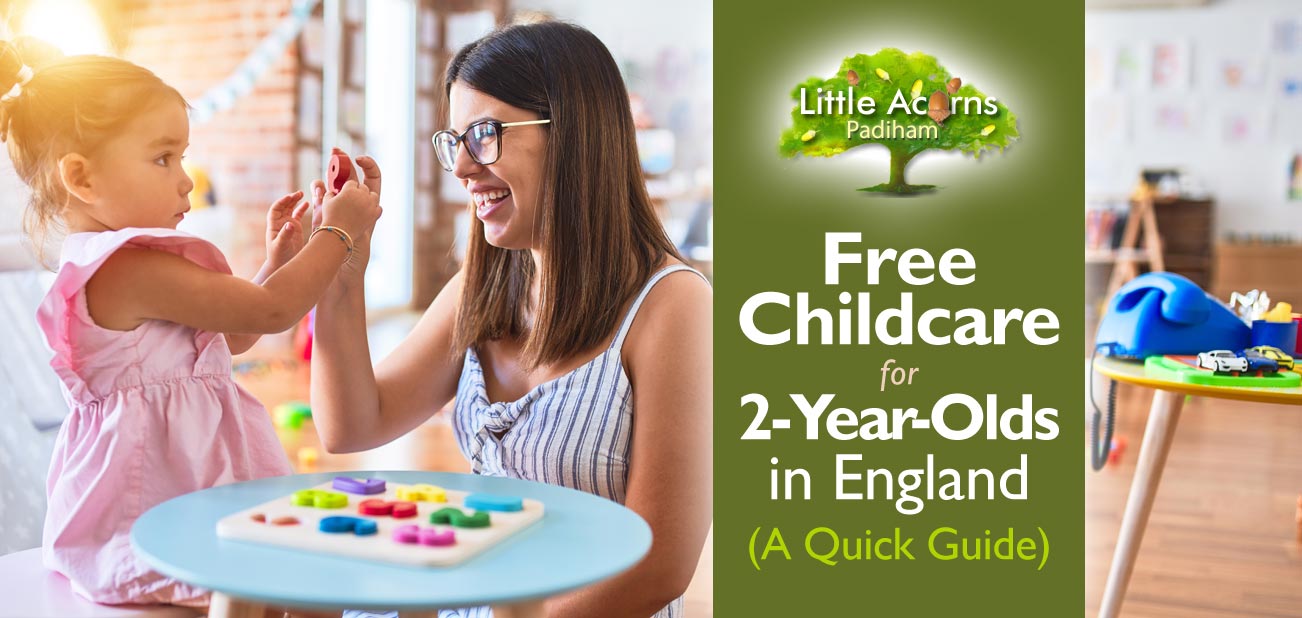
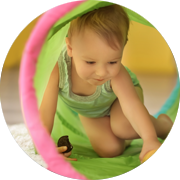 Eligible 2-year-olds can get a total of 570 free childcare hours during the course of a year. The entitlement is usually taken as 15 hours per week over 38 ‘term time’ weeks. However, families may wish to ask childcare providers if they can use the hours in a different way. For example, some may wish to stretch the hours out over 50 or so weeks of the year, in which case it would equate to approximately 11½ free hours per week. The nursery or childcare provider would need to confirm what’s possible. Any extra hours will need to be paid for by the family and the same is usually true for things like nappies, special trips and meals. Even so, 570 free childcare hours should really help families and may allow a stay-at-home parent to get back into the workplace sooner, even if only part-time.
Eligible 2-year-olds can get a total of 570 free childcare hours during the course of a year. The entitlement is usually taken as 15 hours per week over 38 ‘term time’ weeks. However, families may wish to ask childcare providers if they can use the hours in a different way. For example, some may wish to stretch the hours out over 50 or so weeks of the year, in which case it would equate to approximately 11½ free hours per week. The nursery or childcare provider would need to confirm what’s possible. Any extra hours will need to be paid for by the family and the same is usually true for things like nappies, special trips and meals. Even so, 570 free childcare hours should really help families and may allow a stay-at-home parent to get back into the workplace sooner, even if only part-time. Children aged two that live in England may be eligible if their parents/household are in receipt of one or more specific Government benefits. These include:
Children aged two that live in England may be eligible if their parents/household are in receipt of one or more specific Government benefits. These include: If none of the benefit-related criteria above applies, children aged 2 may still qualify for the childcare funding scheme in the following circumstances:
If none of the benefit-related criteria above applies, children aged 2 may still qualify for the childcare funding scheme in the following circumstances: The last category of eligible claimants is some 2-year-olds living in England who are non-UK citizens, whose households cannot claim benefits and whose household income is below a certain threshold. Thresholds vary from £26,500 to £38,600 depending on how many children the family has and whether they live inside or outside of London.
The last category of eligible claimants is some 2-year-olds living in England who are non-UK citizens, whose households cannot claim benefits and whose household income is below a certain threshold. Thresholds vary from £26,500 to £38,600 depending on how many children the family has and whether they live inside or outside of London.